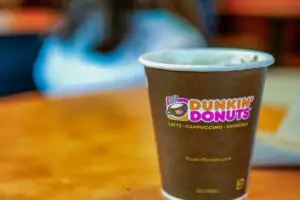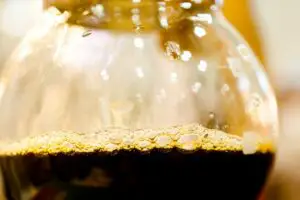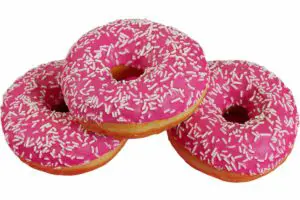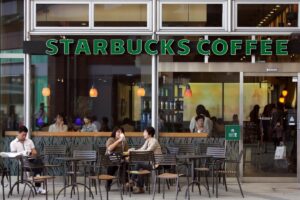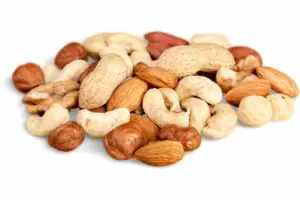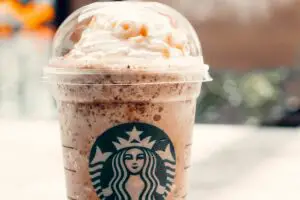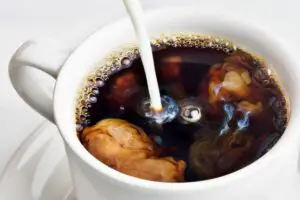*This post may contain affiliate links. As an Amazon Associate we earn from qualifying purchases.
Ah, Dunkin’, or America’s favorite stop for a quick coffee fix. A titan in the world of fast food, Dunkin’ Donuts delivers caffeine-laden beverages to the bleary-eyed masses, along with, of course, delicious donuts.
But let’s focus on the coffee, shall we? Ever wondered why your homemade brew made with Dunkin’s coffee doesn’t quite compare to that heavenly cup you scored on your early morning Dunkin’ run? Fear not, my friends, for I shall guide you through the labyrinth of coffee knowledge to uncover the deliciously caffeinated truth.
Key Takeaways:
- The quality of coffee beans plays a crucial role in the taste of Dunkin’ coffee, with their proprietary blend of Arabica beans sourced from Central and South America.
- Dunkin’ has a specific brewing process with precise coffee-to-water ratios, optimal temperature, and time for extraction, which may be difficult to replicate at home.
- Water quality is important, and Dunkin’ ensures purity and balanced mineral content through filtration systems, while tap water at home may contain impurities that affect taste.
- Dunkin’ uses commercial-grade brewing equipment, thoroughly cleaned, while home coffee makers may lack precision and maintenance.
- Dunkin’ baristas undergo extensive training and follow strict guidelines, contributing to their consistent coffee-making skills, unlike amateur home baristas.
- The ambiance and experience of drinking coffee in a coffee shop can enhance taste perception compared to the chaos of home.
- The convenience and satisfaction of having coffee prepared by professionals can positively impact taste perception.
- Dunkin’ offers a wide range of customization options, including flavors, syrups, sweeteners, milk, and creamers, which may not be readily available for home brewing.
Understanding these factors can help improve our own brewing methods and enhance our coffee-drinking experience at home.
The Quality of Coffee Beans
Dunkin’ coffee beans
As a mother of three adorable yet exhausting children, I rely on Dunkin’ to fuel my daily marathon of errands, PTA meetings, and vehemently denying that I secretly prefer their donuts to my own cooking.
The foundation of their delightful java concoctions lies in the coffee beans. Dunkin’ boasts a proprietary blend of Arabica beans, sourced from Central and South America.
Comparing with Dunkin’ beans used at home
Now, unless you have an intimate relationship with your local Dunkin coffee roaster, chances are the Dunkin’ beans you use at home aren’t as fresh as those at Dunkin’. This can make a world of difference in taste, my dear friends.
Freshly roasted beans have a higher oil content and boast a richer, bolder flavor than those that have been lounging in your pantry since your last existential crisis.
In-Store Brewing Process
Dunkin’s specific brewing methods
Ever tried to mimic the Dunkin’ taste at home but ended up with a sad, mediocre coffee-like liquid? You’re not alone.
Many a caffeine-deprived soul has been baffled by the disparity between their home-brewed and store-bought cups. Dunkin’ has their brewing process down to a science. The beans are brewed with a specific coffee-to-water ratio and at an optimal temperature and time to extract the quintessential Dunkin’ coffee essence.
How home brewing processes vary
If you, like myself, have tried to recreate Dunkin’s coffee at home, you’ve probably encountered some difficulties. As it happens, we, the general coffee-drinking public, are not as skilled or precise as those working at Dunkin’ (and we don’t have access to the same type of machines in most cases either).
Our coffee-to-water ratios may vary each time we brew, and our coffee makers may not heat water to the optimum temperature required for the perfect extraction. In simpler terms, folks, we need to step up our game.
Water Quality and Filtration
Role of water quality in coffee taste
Lo and behold, the hidden factor that can make or break your coffee’s taste: water. Yes, you read that right; your coffee is 98% water.
Dunkin’ takes no shortcuts in ensuring their water is as pure and delicious as the tears of joy that spring forth from comically overtired parents. Their stores have a filtration system to ensure that the water meets their high standards of mineral content and pH balance.
Home water supply
Now, let’s be realistically honest. How many of us, brewing coffee half-asleep in our kitchens, can really boast about the top-notch water quality we use?
The average tap water can contain minerals and impurities that affect the overall taste of your coffee. Even with water filters and softeners installed, it’s hard to achieve the consistent excellence of water that Dunkin’ manages to bring forth—giving your homemade java a fickle and unpredictable flavor.
Brewing Equipment and Maintenance
Dunkin’s professional coffee makers
Alright, folks. Here’s where it really starts to become apparent that we may not be able to match Dunkin’ at home. They use commercial-grade brewing equipment, expertly crafted to consistently extract the richest, boldest flavors from their coffee beans.
If that wasn’t enough, they clean their machines thoroughly, ensuring that each cup of coffee served tastes exactly as intended.
Home coffee makers
Let’s take a moment to reflect on our home coffee-making setups.
- Are we using top-of-the-line machines?
- Do we meticulously clean them after each use?
- Are we scrutinizing the brewing process to ensure consistency?
I’m guessing your answers are, like mine, a resounding no. More likely, we’ve got a modest brewing contraption, one that we clean occasionally (read: when we remember or when we see some suspicious-looking residue), and we typically just press a button without investing much more thought or effort.
Hence, the less-than-stellar coffee produced.
The Right Coffee Grind
Dunkin’s coffee grinding process
Another factor contributing to the coveted taste of Dunkin’ coffee is their attention to detail when it comes to the right coffee grind. They use a specific grind size that is ideal for their brewing process, ensuring an optimal extraction of flavors.
Additionally, their coffee grounds are fresh and consistent, which is critical to achieving that perfect cup.
Grinding coffee at home
For us mere mortals attempting to brew our morning coffee at home, we may not have access to the ideal grind size. Inconsistent or incorrect grind size can lead to either over- or under-extraction, resulting in a less than perfect taste.
And even if we purchase Dunkin’ pre-ground coffee if we leave it sitting around for too long, it can lose its delicious oils and flavors, leaving us with a disappointing cup of joe.
Barista Expertise and Skill
Dunkin’ baristas and employee training
Ever noticed how your friendly neighborhood Dunkin’ employees seem to be able to whip up a perfect cup of coffee every.single.time? That’s because they’ve undergone extensive training in the various brewing techniques and adhere to strict guidelines when preparing your beverage.
In other words, they’re coffee-making champions.
Amateur home baristas
When comparing ourselves to the skilled baristas at Dunkin’, one crucial aspect we lack is expertise.
We may have a basic understanding of the brewing process, but without extensive training and experience, it’s difficult to replicate the finely honed skills of a professional. This can result in a subpar coffee experience as we struggle to measure up to the pros.
The Psychological Effect of Drinking Coffee in Store
The ambiance and experience
There’s something undeniably nice about sitting in a coffee shop, sipping on a scrumptious cup of joe. The atmosphere, the buzz of conversation, the aroma of freshly brewed coffee—all of these factors contribute to an overall pleasant experience that can actually enhance our perception of how the coffee tastes.
We may be more inclined to enjoy our beverage in this setting than in the chaos of our own homes.
The takeaway effect
If you’ve ever grabbed a cup of coffee on the go, you may have noticed that even the simple act of getting a coffee from a store can impact your taste perception.
There’s a sense of convenience and satisfaction in knowing that someone has expertly prepared your beverage for you, which can make the coffee taste even better.
Customizing Your Coffee
Dunkin’s variety of add-ons
Another reason Dunkin’ coffee may taste better than our homemade attempts is the plethora of options they offer for customizing your coffee.
With a wide range of flavors, syrups, and sweeteners, not to mention the variety of milk and creamers available, Dunkin’ has something to suit every palate, allowing you to craft your perfect coffee concoction.
Customizing at home
On the flip side, when brewing coffee at home, our options for customization may be more limited.
It’s unlikely that we are stocking our kitchens with the same assortment of syrups, flavorings, and dairy options, making it difficult to replicate the same level of customization as Dunkin’ offers.
I mean maybe you are… but most of us (include myself) aren’t.
Conclusion
In summary, the myriad factors influencing the taste differences between in-store and homemade Dunkin’ coffee range from the quality of coffee beans and brewing process to the ambiance in which we consume our beverages.
Though it may be difficult to replicate the exact taste of Dunkin’ coffee at home, understanding the various elements that contribute to its unique flavor profile can help us become more informed coffee drinkers and perhaps even inspire us to improve our own brewing methods.
So drink up, fellow coffee enthusiasts, and may your next cup be a delightful experience in its own right.

